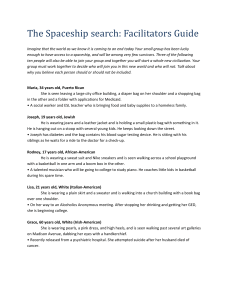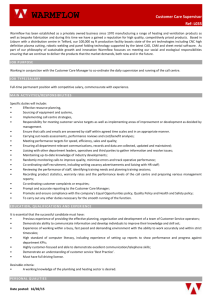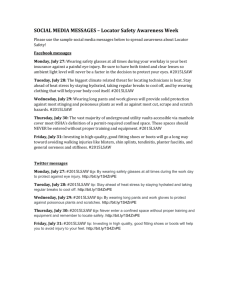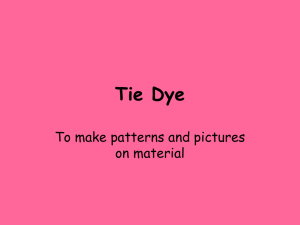If a man can mow a lawn that is 100 feet square in 2 hours, how long
advertisement
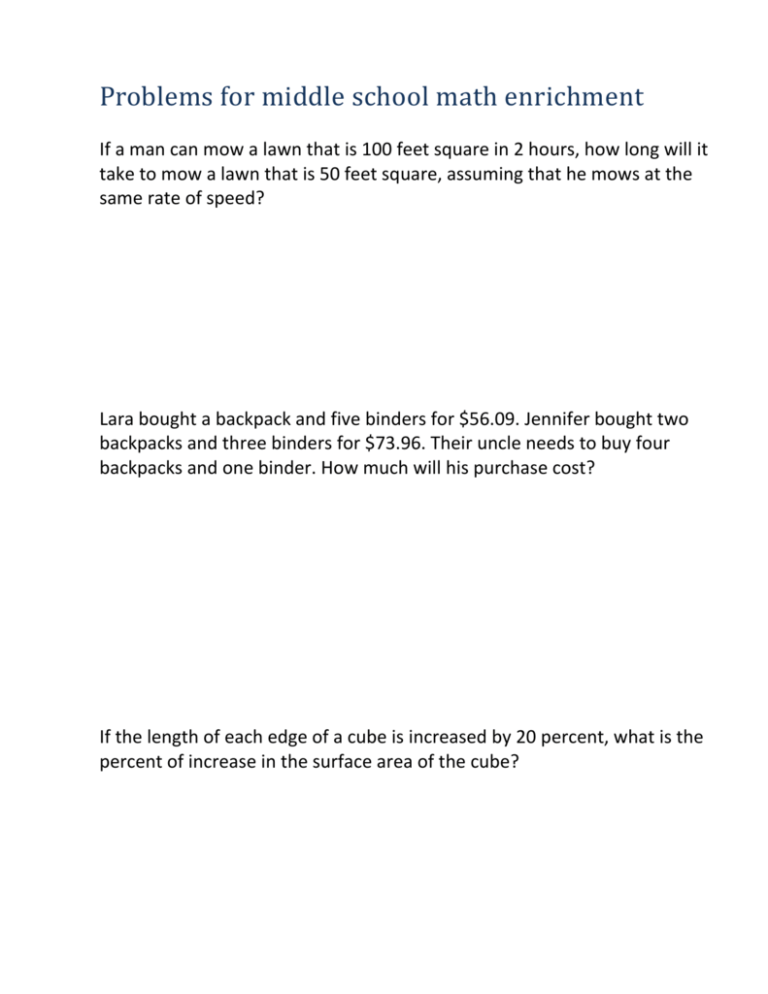
Problems for middle school math enrichment If a man can mow a lawn that is 100 feet square in 2 hours, how long will it take to mow a lawn that is 50 feet square, assuming that he mows at the same rate of speed? Lara bought a backpack and five binders for $56.09. Jennifer bought two backpacks and three binders for $73.96. Their uncle needs to buy four backpacks and one binder. How much will his purchase cost? If the length of each edge of a cube is increased by 20 percent, what is the percent of increase in the surface area of the cube? Below are two patterns of numbers in groupings called Newton and Einstein. You will notice that the numbers 14 and 32 occur in both patterns. Find the next three numbers that would also be in both patterns. Newton: 2, 8, 14, 20, 26, 32, 38, . . . Einstein: 5, 14, 23, 32, 41, 50, 59, . . . You meet three men at a meeting: Mr. Yellow, Mr. Green, and Mr. Blue. They are wearing yellow, green, and blue bow ties. Mr. Yellow says, "Did you notice that the color of our ties are different from our names?" The person in the green bow tie says, "Yes, you are right!" What color of tie is each man wearing? Solutions 1/2 hour. A lawn 100 feet square has an area of 100 feet x 100 feet, or 10,000 square feet. A lawn 50 feet square has an area of 50 feet x 50 feet, or 2500 square feet. The 2500 square foot lawn is 1/4 the size of the 10,000 square foot lawn, so it will take 1/4 as much time to mow it: 1/4 x 2 hrs. = 1/2 hr. $120.62. Let x represent the cost of one backpack, and let y represent the cost of one binder. Lara’s cost was 1x + 5y = $56.09, so x = $56.09 − 5y. Jennifer’s cost was 2x + 3y = $73.96, so 2($56.09 − 5y) + 3y = $73.96. Thus, $73.96 = $112.18 − 10y + 3y = $112.18 − 7y, so 38.22 = 7y. Therefore, the cost of one binder is y = $5.46. Substitution will yield the cost of one backpack: x = $56.09 − 5y = $56.09 − 5($5.46) = $28.79. Thus, their uncle’s purchase will cost: 4x + 1y = 4($28.79) + 1($5.46) = $120.62. 44 percent. A cube with edge length of 1 unit has a surface area of 6 square units. If the length of each edge is increased by 20 percent, the length of each edge becomes 1.2 units, giving each face an area of 1.44 square units. The new cube would have surface area of 6(1.44), or 8.64, square units. This amount is an increase of 2.64 units, or 44 percent. In general terms, for a cube with edge length s, the original surface area is 6s2 and the new surface area is (1.2s)2 = 8.64s2. Since 8.64s2/6s2 = 1.44, a 44 percent increase occurred. 50, 68, and 86. Pattern Newton can be described by beginning with 2 and adding 6 to determine the next value in the pattern, or algebraically by the expression 6n – 4, where n represents a particular term. Pattern Einstein can be described by beginning with 5 and adding 9 to determine the next value in the pattern, or algebraically by the expression 9m – 4, where m represents a particular term. You can extend the patterns for each sequence: Newton: 2, 8, 14, 20, 26, 32, 38, 44, 50, 56, 62, 68, 74, 80, 86 . . . Einstein: 5, 14, 23, 32, 41, 50, 59, 68, 77, 86 . . . Notice that 50, 68, and 86 are the next three values that are in each pattern. You may also notice that there is a difference of 18 between the first value (14) and the second (32). Using this difference, you can find the next three values by adding 18. 32 + 18 = 50 50 + 18 = 68 68 + 18 = 86 To find the answer algebraically, we must find values of n and m such that Newton(n) = Einstein(m), or 6n – 4 = 9m – 4. Simplifying, we obtain 6n = 9m. Dividing both sides by 3, we obtain 2n = 3m, or n = 3m/2, or m = 2n/3. Therefore, n must be a multiple of 3, and m must be an even number greater than or equal to 2. Mr. Blue is wearing green. The reason Mr. Yellow is wearing the blue tie and not the green tie is because in the passage, Mr. Yellow is talking to the man wearing the green tie. Therefore, Mr. Yellow must be wearing the blue tie. The person wearing the green tie cannot be wearing the blue tie so he must be wearing the yellow tie. Therefore, Mr. Blue is wearing the green tie.



